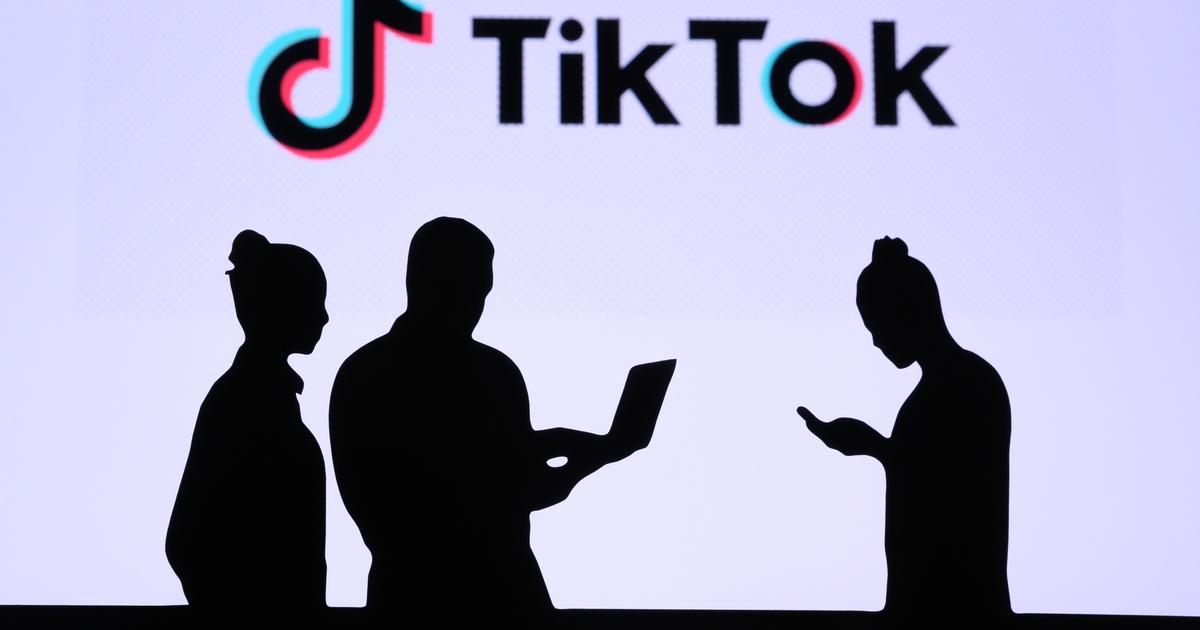A “
sunflower
” emoji to talk about the war in Ukraine or “
depression
” written “
depre$$ion
”.
These words and symbols may mean nothing to you and yet they flourish on TikTok.
On the Chinese social network is emerging another language.
Also called "
algospeak
" or "
algolangage
" in French, it has the characteristic of being constrained by the platform's algorithm, as explained by the Washington Post.
Hence the contraction between the words “
algo
” and “
language
”.
And for good reason, on TikTok it is said algorithm that dictates its law.
Now known for dissecting the mass of videos constantly posted on the platform, he analyzes the image, sound and text of each publication and identifies, according to his own criteria, the content likely to go viral.
Conversely, it also discards those it deems inappropriate and/or contrary to the moderation rules of the network.
Read alsoHow China protects its children and makes ours stupid with the TikTok social network
Gradually, users began to use tricks to cheat this algorithm, as The New York Times points out.
How ?
By tampering with words and using emojis, these pictograms used in electronic messages.
In their own way, they find a way to address themes regularly hidden by the social network such as geopolitics, sexuality or certain health topics.
Write "
Le$bienne
" for "
Lesbian
", "
seggs
" for "
sex
" and use the Carambar emoji to evoke sanitary tampons... There are plenty of examples.
Other symbols, such as corn or eggplant, have long replaced the word "
pornography
" on the social network.
Screenshot of a Tiktok using the word “depre$$ion”.
Clara Durand
The phenomenon amplified with the Covid-19 pandemic, when TikTok sought to sort through the publications evoking the latter directly or indirectly.
Thus, words like "
Panini
" or "
Panda express
" have been tacitly used between Internet users to talk about Covid-19.
To testify to the discomfort caused by the confinements, the TikTokeurs ended up transforming the term “
depression
” into “
depre$$ion
”.
And “
unalive
” (which would translate to
“nonvivant”
in French) has become recurrent to address death or the question of suicide.
Talking about the news also requires certain techniques.
Last February, at the start of the war in Ukraine, the sunflower emoji became the most effective way for users to refer to the country without seeing their content restricted.
“
They find solutions starting from the tools at their disposal on TikTok
”, analyzes Marine Wauquiez, lecturer at the Sorbonne Nouvelle, linguist and specialist in morphology and semantics.
"
A creativity that operates and makes the language evolve, despite the constraint of the algorithm
", she adds.
The sunflower emoji that has become widespread on Tiktok to talk about the war in Ukraine.
Screenshot, Klara Durand
New language
These new words and uses are found between social networks, on Facebook, Instagram or even YouTube.
Faster than a written text message, emojis invest the messages.
But then can this hybrid language have a broader impact on our interactions?
In the 2000s, the appearance of SMS raised the same question.
His way of reducing words worried lovers of the French language.
"
From now on, in oral conversations, therefore disconnected from the telephone interface, we can hear people say ''asap''
(acronym for "a
s soon as possible
" in English, or "
as quickly as possible
" in French, Editor's note)
, which is a shortcut used in text messages
», notes Marine Wauquiez.
For the linguist, this language is gradually being introduced into our uses, without being a really new phenomenon.
“
The different forms of communication intertwine and this phenomenon of construction has always been one of the pillars of the evolution of language
”.
Could a word from these newly invented terms, like “
nonliving
”, ever appear in the dictionary?
“
If only to explain what meaning it carries for this linguistic community that are the users of TikTok
”, estimates Marine Wauquiez.
"
Eventually, users invent
a new slang
and the more of us understand it, the more it becomes a unit in its own right
."
Just like the constantly renewed use of emojis on the social network.
If they are not part of any lexicon, they contribute "
to the creation of a meaning
": by using a flower to talk about Ukraine, Internet users "
encode a symbol which has a given meaning
“, completes the linguist.
Read alsoIndiana accuses TikTok of being a “Chinese Trojan horse”
Especially since the speakers of social networks are aging and educating their children, sometimes unconsciously, to these practices.
“
Today, the fact of using a Carambar to talk about the rules in a roundabout way does not really escape teenagers using TikTok
”, notes Marine Wauquiez.
Children who, moreover, are accessing these social networks and their codes earlier and earlier.

